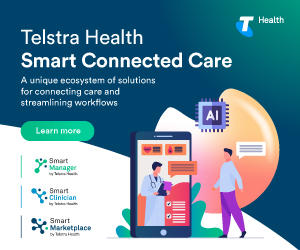Why data integrity is critical for healthcare
Electronic health records, big data and digital transformation have been huge talking points in healthcare. And data integrity remains one of the most critical concerns for healthcare providers serious about maintaining the accuracy and reliability of their patient records. In this article, we take a look at why maintaining the integrity of health data remains a top priority, and what you can do to help.
What is health data integrity?
Data integrity, or ‘data quality,’ refers to the process of maintaining the accuracy, reliability and consistency of data over its entire ‘life-cycle.’ Applied to healthcare, this can include (but is not limited to) maintaining the accuracy of patient’s personal details, health summary, clinical notes, test results and family information.
What is the difference between data integrity and security?
Although they are two separate concepts, data security measures can have a big impact on data integrity. For instance, a data security breach can result in the corruption of data, which then compromises data integrity, as it is no longer accurate and changed from its former, complete state.
This could be as simple as an unauthorised staff member accessing patient records and changing personal details such as their home address and phone number. The practice can no longer rely on that patient data, because data security has been breached and the data integrity compromised so that the information is no longer accurate or reliable.
This means maintaining data integrity in your practice is a matter of protecting it and ensuring it is managed as securely as possible.
What are some good habits to maintain health data integrity?
Generally speaking, there are some simple habits healthcare providers and staff can observe to ensure data integrity is upheld within the every day workflow:
- Attribution: All patient data should clearly and accurately demonstrate who observed and recorded it, when it was observed and recorded, and which patient it is about.
- Legibility and transparency: Patient records should be clear, easy to understand, and preserved securely.
- Contemporaneous – Record patient notes and data in real-time, as observed, and at the time any consult, test or procedure was executed.
- Accuracy: Health data should be accurate, free from errors and conform to the latest industry regulatory policies and procedures.
It’s also important to take measures to ensure your practice meets changing patient privacy laws, My Health Record requirements, and the new NDB scheme. The OAIC’s patient privacy factsheets outline a number of key points you need to know about patient rights to their health information.
Health software updates and data integrity
There’s not place for complacency when it comes to patient data management, so take measures to be proactive, rather than reactive to ensuring your patient data is not put at risk. This means being more proactive when it comes to updating your health software.
Software updates are usually small, incremental improvements to improve the operation of your software, smooth out any minor bugs and add support for new models of technical equipment. These updates commonly reach you as a free download for an application, operating system, or software suite.
Even though regular updates are typically small and free, and seem, at first glance, like a ‘nice to have’ rather than an essential requirement, health technology software updates play a critical important role in protecting health data integrity, and patient data privacy and security. This is because older versions of software may not provide the same level of security as updated versions, potentially leaving your practice data at risk.
So in order to ensure your patient data is protected and your system works smoothly, ensure you install all your updates as soon as they are released.
Managing data integrity at scale
According to MedicalDirector’s latest Patient Engagement Survey 2018, conducted in partnership with online appointment and eHealth platform, HotDoc, patients value both privacy and security as a top priority in healthcare.
In fact, when it comes to accessing medical health records, over 90% of respondents agreed both availability, accuracy, safety and integrity of data and privacy (confidentiality and appropriate use of data) are extremely important.
This means it’s important to implement the best solution to maintain the integrity of your patient data. A great example of being proactive is using cloud-based solutions with robust secure storage and backup systems.
And more than ever before, healthcare organisations are taking advantage of the new, compliance-ready, secure cloud environments to extend and distribute their healthcare ecosystem. Cloud-based clinical and practice solutions such as Helix, can ensure the safety and integrity of your data, even when your practice scales and your patient data grows.









